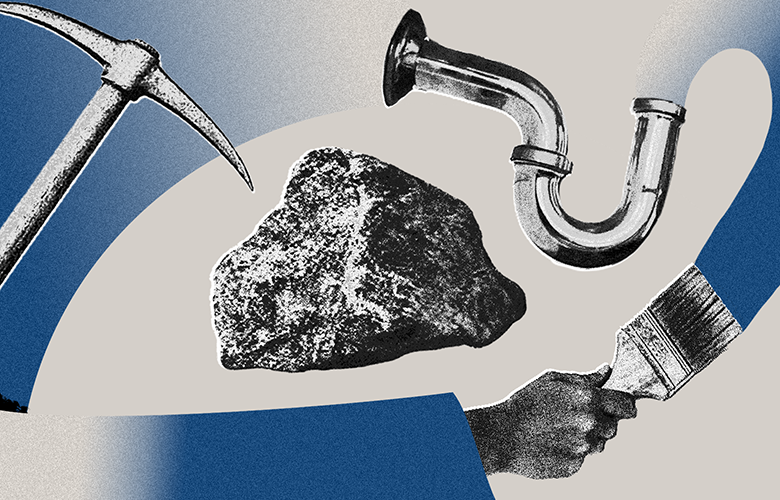Written by Maxie Gluckman and Brittany Aubin (IREX)
This International Youth Day, BEC and IREX want to celebrate Africa’s richest and fastest growing resource— youth! There is an unprecedented pool of talent within the continent, fueled by a growing population with increased access to educational opportunities (AUC/OECD, 2024). However, as in the rest of the world, there is an increasing need to ensure that these young people can access quality skills development that is aligned with the labor market’s needs, so they can transform their own lives and drive their countries’ economic development.
This is particularly true for digital skill development. While there is a growing familiarity and comfort with basic digital skills – such as smartphone use, email, basic file management, and web browsing – across the continent, the demand for intermediate digital skills – such as e-commerce and financial software, professional social media, and data entry and management – is rapidly outpacing the existing supply. According to UNICEF’s Learning and Skills database, across 15 African countries, only 5% of young people presently possess these intermediate digital skills (UNICEF, 2022). Skills gaps are even more pronounced for women and marginalized communities, which limits their participation in the digital economy, entrepreneurship, and decision-making processes related to technology (ILO, 2023; UNICEF, 2023).
As the science fiction writer William Gibson once said, “The future is already here — it's just not very evenly distributed.” In a world that feels more like science fiction every day, how can we extend access to the digital skills that allow everyone to take advantage of this future? IREX weighs in on its innovative solution, Digital ESE, and the learnings from their recent pilot experience in Nairobi, Kenya.
Bridging the Digital Skills Gap, with “ESE”: Efficiently, Safely, and Effectively
IREX developed its Digital-ESE (Efficiently, Safely, and Effectively) curriculum with and for youth to enhance their skills as “power learners” in digital upskilling, building their confidence and skills to navigate self-directed learning opportunities efficiently, safely, and effectively. “Power learners” are people who capitalize on learning opportunities, apply their learning in the workplace, and drive their own professional development (IREX, 2020). Our approach to youth development acknowledges that youth are already adept at overcoming barriers and identifying the steps they need to take to drive their own lives.
In the absence of curricula that include workplace skills and employers that prioritize professional development, youth are actively taking the initiative to acquire new digital skills through non-traditional and self-directed means. The Digital-ESE self-guided modules aim to accelerate and strengthen these efforts by coaching youth through identifying opportunities to improve digital skills, cultivating effective learning environments, evaluating their learning progress, navigating online spaces safely and responsibly, engaging in a digital learning community, and leveraging digital skill-building efforts to promote professional growth.
To develop Digital-ESE, IREX interviewed 44 urban and peri-urban Kenyan youth about their experiences with digital skill-building. Based on those interviews, IREX created a custom generative AI tool that produced authentic scenarios and a representative persona of a youth digital upskiller, named Wanjiku. The Digital-ESE curriculum is grounded in Wanjiku’s story, which pulls from the lived experiences and challenges with learning online that the interviewees described.
Youth Upskill and See Themselves Represented in Wanjiku
On June 22, 2024, 14 female youth joined IREX and their partner youth-led organization Safe Online Women (SOW-Kenya) for the Digital-ESE pilot at the IREX office in Nairobi. Throughout the day, SOW-Kenya’s expert facilitators guided participants through story-based scenarios, instructional content, and interactive activities where they identified connections with Wanjiku’s story and built a personalized learner profile for putting their digital sills into practice.
Employing the hashtag #WanjikuAndI, participants shared what stood out most to them through the session. Reflecting on the risks of mis- and dis-information, one woman commented, “I now understand that I should not fully rely on online resources and that I should fact check to ensure I use information that is from legitimate sources.” Another participant summarized her learning as “I should be keen on whatever I share online since there is footprint, we leave behind it that is usually beyond our control... Also, there are places to report cyberbullying and cookies put us at risk, tracking the stored information.”
IREX has captured some Digital-ESE learnings, including a literature review detailing the importance of digital skill development efforts which can be found here.
Skill Building to Keep Pace with an Increasingly Digital Future
As new digital technologies continue to accelerate us into the future, we will all spend more of our professional lives in self-directed online learning. The Digital-ESE curriculum provides useful guidance to empower youth to learn effectively and efficiently, recognizing the many other draws on their time and resources, and to practice safety measures while spending more time in digital spaces. Wanjiku may not be real, but her story represents that of many young people who are eager to capitalize on this moment of digital transformation. While IREX wrote the end of Wanjiku's story, we are excited to see the stories of today's youth that have yet to be written, and that will help define and advance the future.
AUC/OECD (2024). Africa's Development Dynamics 2024: Skills, Jobs and Productivity. Addis Ababa/OECD Publishing, Paris, https://doi.org/10.1787/df06c7a4-en
ILO (2023). Youth Skills: Tackling Challenges and Seizing Opportunities for a Brighter Future of Work. https://ilostat.ilo.org/blog/youth-skills-tackling-challenges-and-seizing-opportunities-for-a-brighter-future-of-work/
IREX (2020). Power Learning Tool Employee Essential Skills. https://www.irex.org/sites/default/files/node/resource/power-learning-tool-employee-essential-skills.pdf
UNICEF (2023). Recovering Learning: Are Children and Youth on Track in Skills Development? www.unicef.org/media/123626/file/UNICEF_Recovering_Learning_Report_EN.pdf.pdf.
UNICEF (2022). UNICEF Global Database on Information and Communications Technology Skills. https://data.unicef.org/resources/dataset/learning-and-skills/







